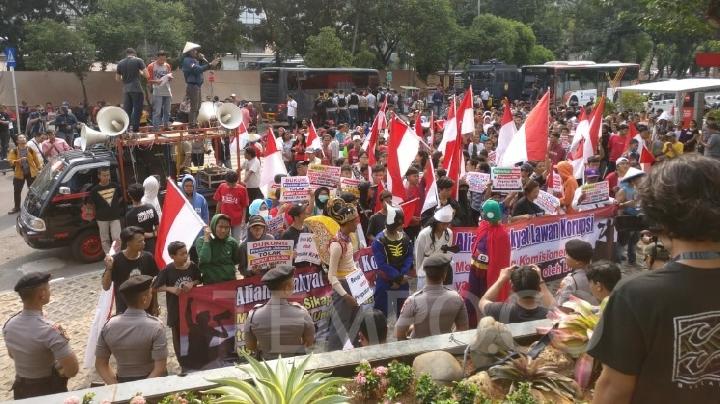Dissecting 6 Articles of KPK Law Revision
Translator
Editor
16 September 2019 14:50 WIB

TEMPO.CO, Jakarta - The government and the House of Representatives' (DPR) legislation board agreed on a number of revisions and changes to Law No.30/2002 on the Corruption Eradication Commission (KPK Law revision).
Here are the six clauses that were agreed upon by the two state entities and the arguments provided by experts in the field:
- Article 1 (7)
“Employees of the KPK will be considered as state apparatuses as overseen by the Law on civil servants (ASN).”.
Andalas University's anti-graft center of studies director, Feri Amsari, argues that making KPK employees civil servants will effectively eliminate the agency’s independence as investigators, as this will render KPK employees under the authority of the Administrative and Bureaucratic Reform Ministry.
- Article 3
“KPK is a cluster of the state institution’s executive that is independent and free from any influences in conducting its duties.”
Trisakti University legal expert Abdul Fickar Hadjar considers the changes of KPK’s status from a state agency to a government state agency will hamper its nonpartisan nature, unlike its status as a state agency that cannot be intervened by any external authority.
- Article 12B
- Wiretapping can only be conducted by obtaining a written permit from the Supervisory Board.
- The Supervisory Board must grant a permit for a wiretap from the KPK no more than 24 hours after the request was submitted.
- After obtaining the written permit for a wiretap, the KPK must conduct it within 6 months since the permit was given. This permit, if exceeding its expiration date, can be resubmitted for another six months.
The Indonesia Corruption Watch (ICW) considers the existence of the Supervisory Board as a form of intervention from the House of Representatives (DPR) and the government against the KPK. ICW researcher Kurnia Ramadhana deems the board will further hamper the bureaucracy of an investigation and might eliminate the momentum to nab a suspect of corruption.
- Article 12C
Wiretapping missions that are completed must be reported to KPK leaders and the Supervisory Board within 14 workdays since the mission was executed.
- Article 24
- KPK employees are members of the civil servants' professional corps as regulated under the Law (UU).
- Provisions on how to employ a KPK employee must adhere to the Law overseeing it.
- Article 69B
- Once the KPK Law is applicable, the agency's investigators that have yet to be promoted as civil servants after the implementation of the Law must be promoted within two years at the latest.
M ROSSENO AJI























